What is neurodiversity, and what does it mean for philosophy? Sam Crutcher explores how “divergent worldviews” shape philosophical insight and discussion.
The beauty of philosophy begins with the philosopher: their mind, creativity, and unique innovative worldview. But what do we actually know of this philosopher? Perhaps we know that they are a “lover of wisdom”. We know that they are forever expanding the frontiers of what we think we know, dutifully and diligently challenging presuppositions to dismantle dogma. But what of their mind? What of the actual blueprint of their brain and of the thoughts that precede their theories? If we are truly fascinated by Wittgenstein’s Private Language Argument or Einstein’s theories of relativity, then ought we not be fascinated by the minds that birthed these theories?
Philosophical titans, of course – but both ASD titans? – “Surely not”, someone may reply – “ASD” stands for Autistic Spectrum Disorder, and I wouldn’t call Wittgenstein “disordered”, And yet, many experts agree that Wittgenstein had the classic traits of Asperger Syndrome.1 And then there is the evidence of Einstein’s autism… and even his dyslexia? His dyspraxia? ADHD?! You’re having a giggle. The idea that a man who essentially launched modern physics was disabled – “Come off it”, someone replies. Yet many experts on autism, developmental co-ordination disorder, dyslexia, and attention deficit disorder have given compelling evidence that Einstein was…. different.2 Eccentric? – Perhaps. Unique? – Well yes, of course. But to many it might seem unfathomable that such a man struggled to read the very words he wrote, or would misplace the very pencils he used to make history.
The word neurodivergent or neurodiverse (as opposed to neurotypical) is commonly used to describe the spectrum of minds that associated with ASD, dyslexia, dyspraxia, ADHD, and many others: minds that include Wittgenstein’s and Einstein’s. I would like to point out what is perhaps only implicit in a great deal of philosophy, but worth saying explicitly: many philosophical and scientific minds are valuable precisely because they are neurodiverse. To call these conditions mere “disorders” would fail to do them justice.
Philosophy often involves the art of fishing for gold: inspecting and sifting through the sedimentation at the river bed of the mind, in order to isolate that golden conclusion from the sea of superfluous content and intellectual dead-ends. And neurodivergents, with their idiosyncratic learning styles, hyper-systemising minds, and unique calibrations of intellectual intelligence, are often uniquely talented sifters for gold: where a neurotypical philosopher finds worthless mud, the neurodiverse philosopher cuts out the superfluous content, truncates the intellectual dead-ends, filters out the static white-noise of academic garbage, and isolates the golden conclusion. Wittgenstein himself articulated this process in his characteristically vivid way:
“Getting hold of the difficulty deep down is what is hard. Because if it is grasped near the surface it simply remains the difficulty it was. It has to be pulled out by the roots; and that involves our beginning to think about these things in a new way. The change is as decisive as, for example, that from the alchemical to the chemical way of thinking. The new way of thinking is what is so hard to establish.” 3
Philosophy is the art of dancing with big ideas, and the biggest of ideas often require a new perspective, something so unique as to pull out presuppositions by the roots to find the gold where others saw only mud. The biggest of ideas often demand divergence from mainstream thinking. We would be remiss to ignore the role that neurodivergence may play in this.
So the philosopher may often have a neurodivergent outlook. Is this kind of outlook unique to the “lovers of wisdom”, the philosophers?
Err…. No. Tracing back the milestones of human innovation, we see a story that is gushing with neurodivergence: of autistic worldviews and of learning-style differences. Darwin mobilised his apparent autism – let us now view it as a hyper-systemising gift – to spot evolution’s encrypted footsteps in the Galapagos, where he found golden conclusions where others saw only dead dodos; Newton used his apparent autism to redefine our conception of “energy”; Autistic Turing’s systemising mind shaved years off the allied war-effort; Job’s and Gate’s dyslexia and eccentric learning styles designed the operating systems powering our world; Eddison’s lightbulb; Mozart’s piano; Ford’s Motor Company; the Sistine Chapel… (Pauses to catch breath).4
Consider the story of Paul Dirac. The unique workings of his mind were incredible. Don’t just take my word for it: Einstein wrote of him in a letter to Ehrenfest,
“I have trouble with Dirac. This balancing on the dizzying path between genius and madness is awful.” 5
Dirac was the youngest recipient of the 1933 Nobel Prize in Physics for the discovery of new productive forms of atomic theory. He also predicted the existence of antimatter, among his many other achievements. I’m no physicist, but that makes for a pretty strong CV. From Dirac to Turing and beyond, we see signs of neurodivergence – from science to fighting fascists. Diverse minds are different minds; different minds are often uniquely perceptive minds; and uniquely perceptive minds underpin some of the greatest achievements in philosophy, science and beyond.
I love philosophy – I really do. To break down colossal and cataclysmic ideas into just a few lines of argumentation vibes well with my multifaceted neurodivergence. So let me try break down my own (much more modest) argumentation here:
Premise 1: Many scientific and philosophical minds are valuable precisely because they diverge from the typical – through unique insight and novel worldviews that enrich the scientific and philosophical landscape.
Premise 2: Neurodiversity is a valuable way for a mind to diverge from the typical.
————
Conclusion: Therefore, many scientific and philosophical minds are valuable precisely because they are neurodiverse – i.e., to call this a “disorder” would be to misuse the term. Valuable minds underpin philosophy, no wonder Sam loves it, and it is about time we celebrate neurodiversity!
In one sense, my conclusion is a simple celebration of the uniqueness of minds. Every human being – student or professor, theorist or practitioner – has their own unique worldview. If it is not a neurodivergent worldview, then it is still a neuro-different worldview. Our ways of learning, of living, of loving and of being, ought be respected. Every human being is uniquely beautiful and beautifully unique.
But in another sense, my conclusion is to highlight the special role of divergent people in philosophy and science. Neurodivergence in these fields is not peripheral, nor is it disabling. It is sometimes central to philosophical practice, and it can be remarkably facilitating. It paves the path for many of the most creative of philosophers. It spearheads philosophy’s transformations.
By Sam Crutcher
Sam Crutcher is a third-year social policy student and the LSESU neurodivergent officer. He is working hard on campus to promote awareness of neurodiversity. He enjoys speaking about Neurodiversity, but loves even more to listen to others speaking about Neurodiversity. Every human being is the sole true expert on their own brains and their own neurodivergence.
LSE Neurodiversity Week: 28 March – 1 April, 2022
LSE’s largest ever “Neurodiversity Week” will be held between 28 March to 1 April, and will include one event devoted entirely to neurodiversity! There will be a diverse set of speakers from various backgrounds – from LSE professors to outside academics to interested students. The format and content of the event will be innovative and exciting. Keep your eyes peeled for more details! And contact su.neurodivergent@lse.ac.uk for more questions or comments; the organisers would love to hear from you 🙂


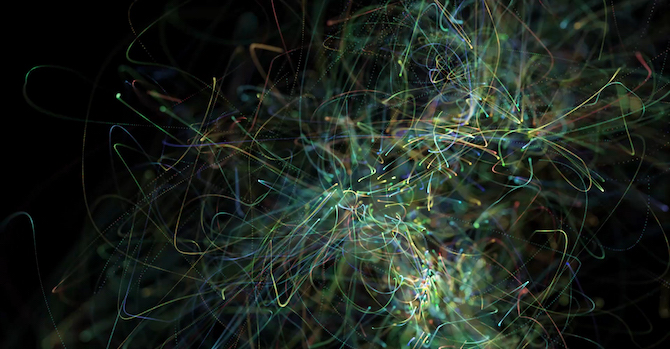
















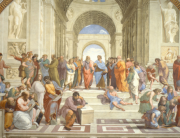




















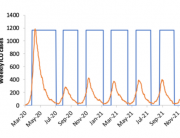

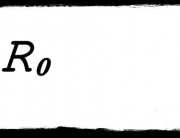

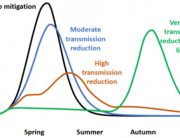
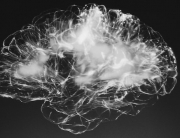

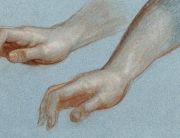







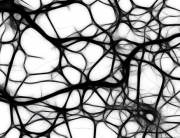







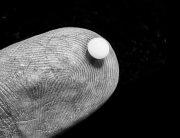
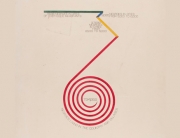






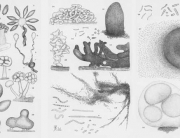






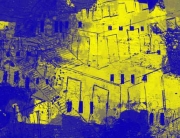




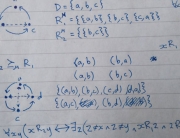


















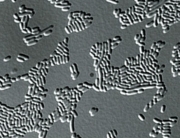






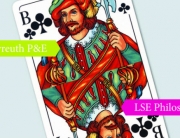


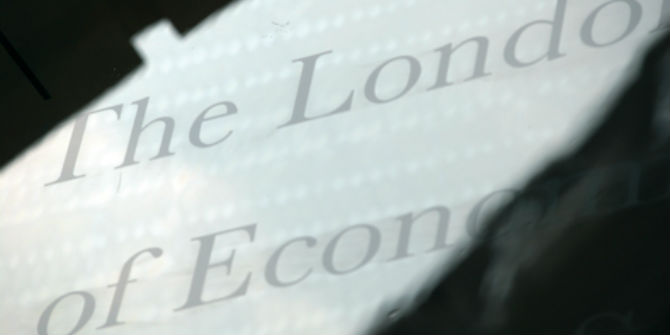










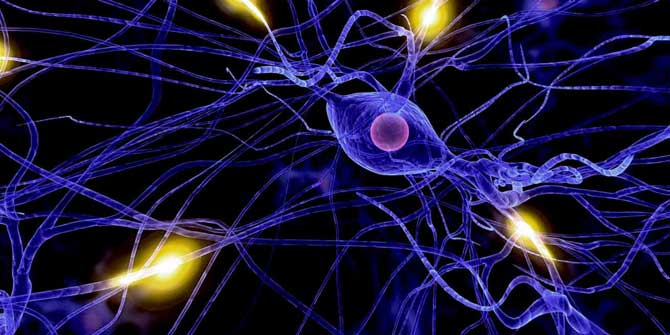


A very interesting blog article, indeed! Thank you Mr. Sam Crutcher for sharing your views on neurodiversity and what it means for philosophy. Although I do not have a degree in philosophy (my background and degrees are in chemistry and health physics), I do like to read up on philosophy on a quasi-regular basis. What I would be curious about is if neurodiversity is something that is culture-dependent and I would imagine that it is also time-dependent, meaning, neurodiversity is defined in contradistinction to mainstream thinking at a particular time in a certain culture. In our globalized world, there’s a great deal of intercultural exchange and with the aid of technology, the flow of ideas is at its most rapid in human history. Nevertheless, local cultural/social norms may dictate what constitutes mainstream thinking to some degree, and that may be in conflict with what mainstream thinking is in another part of the world. So, is it possible to define neurodiversity as a universal concept, or is it more of a local one? Thank you.
What a fantastic question. 1 good question is worth 10 good answers, imo. My own subjective thoughts are:
“Is ND culture/time dependent?”.
I’m happy you’re already asking this. You are already considering the fundamental ‘social’ aspect of ND; if ND can be understood as produced by social dynamics, then maybe ND means one thing in one location but another thing elsewhere. Other interpretations of ND relate to more ‘biological’ facts; Sam Crutcher is objectively NDivergent because his brain is objectively divergent from mainstream norms. I myself wonder frequently whether the ‘social’ or the ‘biological’ interpretations are in opposition to each other, and what this might mean for ND movements…. I’m unsure if I’m in fact inadvertently conflating these two interpretations of ND when I discuss it in my advocacy roles. I like what you say: that we should focus on ND as being embedded in the social dynamics that construct the situation facing neurodivergents. But there are alternative definitions to consider
Your comments about globalisation raise the exciting future of ND. We are entering a (21st century) new world: geologists call in anthropocene, economists/politicians call it globalisation, the media call it post-pandemic world. And what of neurodiversity? What role will ND play in the 21st century? As distinctions between different countries and betwen us/them, and as the climate crisis forces us to reconsider humanity’s place in the world, what vision of ‘human difference’ comes next? Social Policy would call this opportunity to reconsider our presuppositions surrounding ‘what is human’ a “policy window”. Will humanity make the most of this policy window?
Different interpretations of ‘disability’ (whatever that term means…) conceptualise disability differently: medical model of disability views it as an inherent pathology; social model of disability views it as produced BY society; neurodiversity paradigm (Nicolas Walker) and ‘minority body view’ (Elisabeth Barnes) reject the term “disability” for neurocognitive difference (e.g., autism, ADHD, brain injury etc), instead seeing them as just ‘variations of brain types’. Maybe: “Neurodiversity is for what human society what Biodiversity is for global ecologies”. My thoughts: “difference/diversity is crucial for all global systems; variation in human bodyminds should be reconceptualised/reinterpreted in ways more sensitive to the struggles and potentials of ND